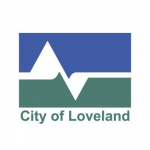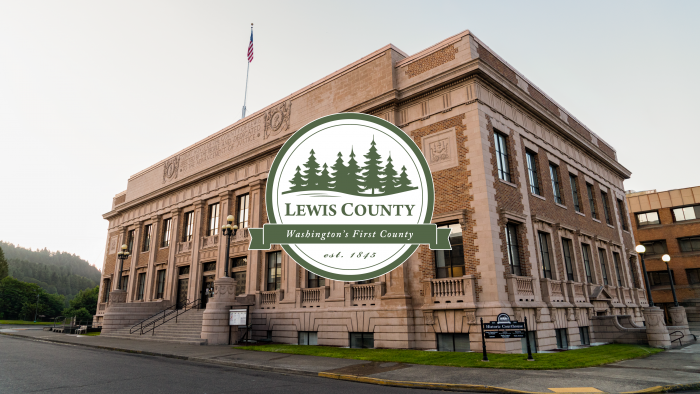Everything You Need To Apply To Criminology Jobs In Government

Are you ready to respond to the call of criminology within the government sector? With the right preparation and knowledge, you can turn your passion for criminal justice into your profession. Here we'll provide you with a step-by-step guide to help you understand the requirements and navigate the application process of some of the best criminology jobs in the nation.
Types of Criminology Careers in Government
The government offers a wide range of criminology jobs, each with its own unique responsibilities and requirements. Some popular positions include:
- Analyze crime data to identify patterns and trends.
- Assist law enforcement agencies in developing strategies to prevent and solve crimes.
- Utilize statistical analysis and data visualization tools to present findings.
- Conduct investigations into suspected criminal activities.
- Gather evidence, interview witnesses, and make arrests.
- Collaborate with other law enforcement agencies and prosecutors.
- Assess the mental health of individuals involved in the criminal justice system.
- Provide expert testimony in court proceedings.
- Develop treatment plans for offenders and support victims of crime.
- Conduct research on the causes and consequences of criminal behavior.
- Analyze crime data and develop theories to explain criminal activity.
- Advise policymakers and law enforcement agencies on effective crime prevention strategies.
- Collect and analyze physical evidence from crime scenes.
- Perform laboratory tests on evidence using scientific techniques.
- Provide expert testimony in court regarding forensic evidence.
Take the time to research each role and determine which one aligns best with your interests and skills. Consider shadowing professionals in your desired field or conducting informational interviews to gain a deeper understanding of the day-to-day responsibilities and challenges of each position and verify that it's the right for you.
Educational Requirements

To be accepted into a criminology department, you'll need to meet specific educational requirements. While the exact requirements may vary depending on the position and agency, most roles require at least a bachelor's degree in a relevant field.
- Most entry-level criminology jobs in government require a Bachelor's degree.
- Common majors include criminology, criminal justice, psychology, sociology, or political science.
- Some positions may accept degrees in related fields, such as social work or public administration.
- Some advanced or specialized positions may require a Master's degree.
- A Master's degree in criminology, criminal justice, or a related field can enhance your knowledge and skills.
- Pursuing a Master's degree can also help you stand out from other applicants and increase your earning potential.
- Certain high-level positions, such as criminologists or research roles, may require a PhD.
- A doctoral degree involves extensive research and original contributions to the field of criminology.
- Obtaining a PhD can open doors to academia, policy-making, and leadership roles within government agencies.
While a Bachelor's degree is the minimum requirement for most criminology jobs, proceeding to earn a Master's or Doctoral degree can significantly boost your career prospects!
In addition to formal education, many government agencies also value relevant certifications, such as:
- Certified Crime Analyst(CCA)
- Certified Criminal Justice Specialist(CCJS)
- Certified Fraud Examiner(CFE)
Obtaining these certifications demonstrates your expertise and commitment to professional development.
It's essential to research the specific educational requirements for your desired job and plan your academic journey accordingly. Consider reaching out to professionals in your target role or contacting the hiring agency directly to gather more information on their preferred qualifications.
Work Experience and Internships

While education lays the foundation for a career in criminology, hands-on experience is equally essential. Government agencies often seek candidates with relevant work experience or internships, as it demonstrates your ability to apply your knowledge in real-world settings.
- Many government agencies offer internships for students or recent graduates interested in criminology.
- Internships provide valuable opportunities to gain practical experience and network with professionals in the field.
- Look for internships with local, state, or federal law enforcement agencies, courts, or correctional facilities.
- Some government agencies hire candidates for entry-level positions that relate to criminology, such as police officers or probation officers.
- These roles can serve as stepping stones to more advanced criminology positions.
- Gaining experience in entry-level positions can help you understand the inner workings of the criminal justice system and develop essential skills.
- Volunteering with local law enforcement agencies, victim support organizations, or community outreach programs can provide valuable experience.
- Volunteer work demonstrates your commitment to the field and can help you build relationships with professionals in the industry.
- Consider volunteering with organizations that align with your specific interests, such as domestic violence shelters or youth mentoring programs.
Don't wait until after graduation to start gaining experience! Seek out internships and volunteer opportunities early on to build your resume and stand out from other applicants.
When applying for criminology jobs in government, be sure to highlight your relevant work experience and internships on your resume and cover letter. Describe your responsibilities, achievements, and the skills you developed in each role.
In addition to formal internships and work experience, consider pursuing research projects or assisting professors with their studies. Demonstrating your ability to conduct research and analyze data can be a valuable asset in many criminology jobs.
Collaborating with professors on research projects not only enhances your skills but also provides opportunities for mentorship and professional recommendations.
Remember, the key is to gain practical experience that aligns with your career goals in criminology. Be proactive in seeking out opportunities and making the most of each experience to build a strong foundation for your future career.
Discover available jobs
[cn_widget id="sjb-search-form-widget-2"]Essential Skills for Criminology Professionals
To excel in a criminology career within the government sector, you'll need a diverse set of skills. These skills will help you navigate complex cases, communicate effectively with colleagues and the public, and make data-driven decisions.
- Analyze complex information and evidence to draw logical conclusions.
- Identify patterns and connections in criminal behavior and activities.
- Develop innovative solutions to prevent and solve crimes.
- Effectively communicate findings and recommendations to colleagues, superiors, and external stakeholders.
- Collaborate with team members and other agencies to achieve common goals.
- Build trust with victims, witnesses, and community members.
- Demonstrate understanding and compassion when interacting with victims and their families.
- Manage stress and maintain composure in high-pressure situations.
- Practice self-care and maintain a healthy work-life balance.
- Carefully examine evidence and data to ensure accuracy and thoroughness.
- Maintain meticulous records and documentation.
- Identify minor details that could be crucial to a case or investigation.
- Utilize statistical analysis techniques to interpret crime data and identify trends.
- Conduct thorough research to support investigations and decision-making processes.
- Stay up-to-date with the latest research and best practices in the field of criminology.
Navigating the Government Job Application Process

Applying for criminology jobs in the government sector can be a complex and competitive process. However, with the right strategies and preparation, you can increase your chances of landing your dream job.
-
CareersInGovernment.com
offers jobs in the U.S. federal government.
- Create a detailed profile that highlights your education, experience, and skills.
- Upload a tailored resume and cover letter for each job application.
- Carefully review the job posting and identify the key qualifications and requirements.
- Customize your resume and cover letter to showcase how your experiences and skills align with the specific job duties.
- Use keywords from the job posting to demonstrate your fit for the role.
- Many government jobs require applicants to complete assessments, such as written tests or structured interviews.
- Research the types of assessments commonly used for your desired position.
- Practice sample questions and scenarios to build your confidence and skills.
- Government hiring processes can be lengthy, often taking several months from application to job offer.
- Stay organized and keep track of your applications and follow-up tasks.
- Continue to apply for relevant positions and network with professionals in the field.
In addition to these steps, it's essential to network and build relationships with professionals in the criminology field. Attend job fairs, join professional organizations, and connect with alumni from your academic program to expand your network and learn about potential job opportunities.
When applying for government jobs, be prepared for additional steps such as background checks, security clearances, and drug screenings. These processes can take time, so be patient and responsive to any request for information or documentation, completing the action in a timely manner.
Conclusion
Pursuing a criminology job in government can be a challenging but incredibly rewarding journey. By understanding the educational requirements, gaining relevant experience, developing essential skills, and navigating the application process, you'll be well-prepared to launch a successful career in this dynamic field.
Building a career in criminology within the government sector requires dedication, perseverance, and a willingness to adapt to change. Stay informed about the latest trends and best practices in the field, and actively seek out opportunities to expand your knowledge and skills.


























































